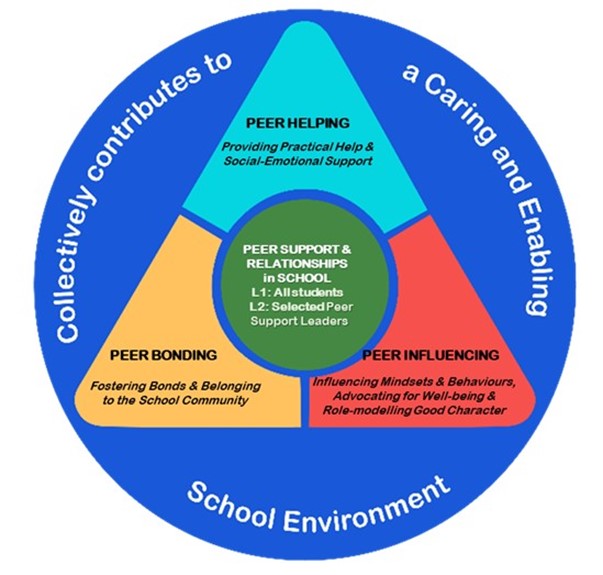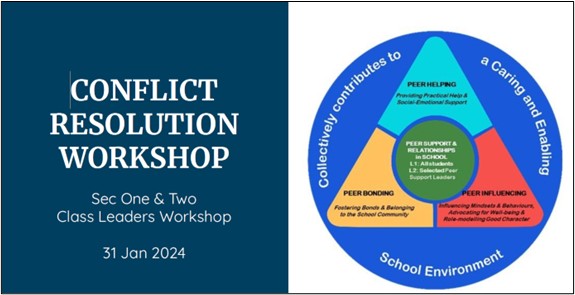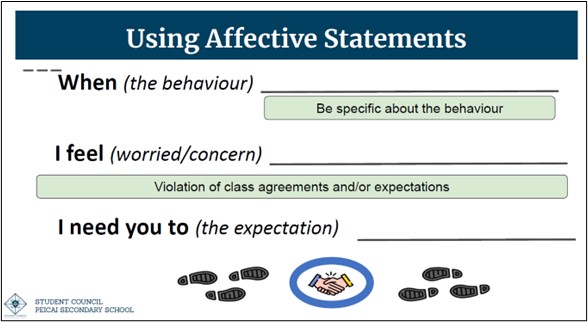Peer Support
Peer Support and Relationships (PSR) @ Peicai
Supportive peer relationships form a critical part of the network of positive relationships in school. Peers are a significant source of support for most students and especially so for adolescents as they are more likely to turn to their friends rather than adults for help. With Peer Support and Relationships (PSR), students participate in fostering strong bonds of friendships and a sense of belonging to the school community (peer bonding), provide practical help, and social-emotional support to one another (peer helping) and promote positive mindsets, pro-social behaviours both online and offline, well-being and role-model good character (peer influencing). Taken together, these efforts contribute to the building of a caring and supportive peer culture, by students for students.
PSR Framework

|
|
|---|---|
|
3 Key Domains of PSR: |
|
|
Peer Bonding |
Fostering Bonds & Belonging to the School Community |
|
Peer Helping |
Providing Practical Help & Social-Emotional Support |
|
Peer Influencing |
Influencing Mindsets & Behaviours, Advocating for Well-being & Role-modelling Good Character |
PSR Implementation
There are two tiers of PSR implementation:
-
Tier 1 - Programmes catered for all students
Every student can be a peer supporter with explicit teaching of basic PSR knowledge and skills, and provision of opportunities for students to demonstrate PSR.
-
Tier 2 - Programmes for students selected for Peer Support Leaders (PSLs) programme
PSLs make up one of the three student leadership wings in our school. These leaders undergo experiential development to become more adept at skills and dispositions in the three PSR domains.
2024
Conflict Resolution Workshop for Lower Secondary Class Committee Members

|
|---|

|
|
The Conflict Resolution workshop aimed to equip students with essential skills and dispositions for managing conflicts between peers in a school environment. Participants explored different types of conflicts, such as misunderstandings, disagreements, and social tensions, while identifying possible causes like miscommunication and peer pressure. The workshop emphasized the importance of recognizing these conflicts early on and understanding their roots. Students practiced using affective statements—expressing feelings and needs in a clear and respectful manner—to communicate effectively with peers. Through interactive role-playing scenarios, they learned to express their emotions constructively, promoting empathy and fostering healthier, more positive relationships within the school community. |

